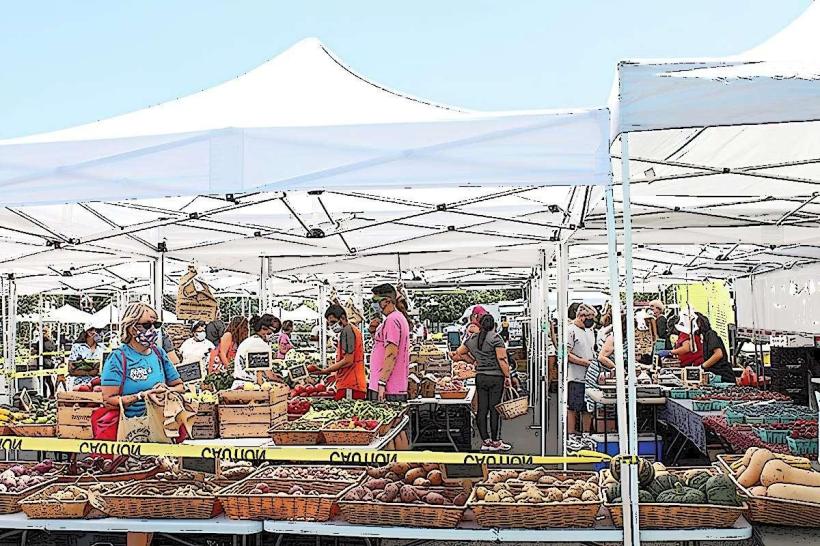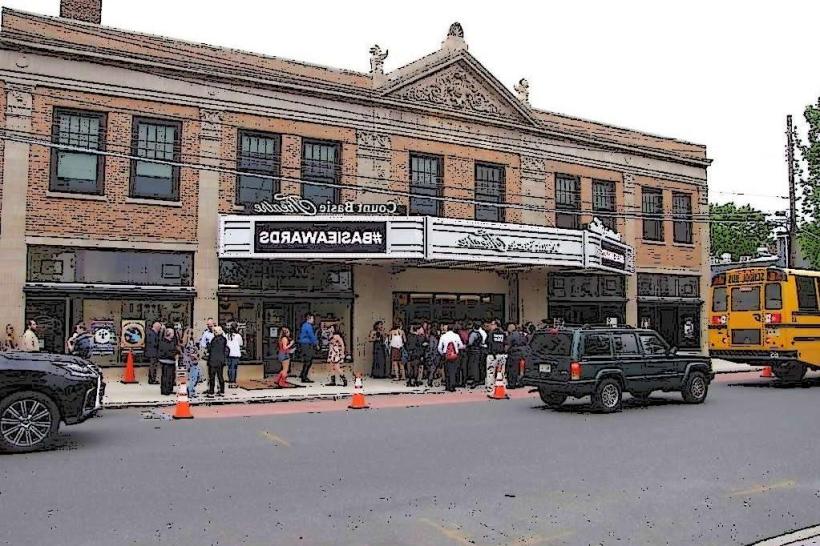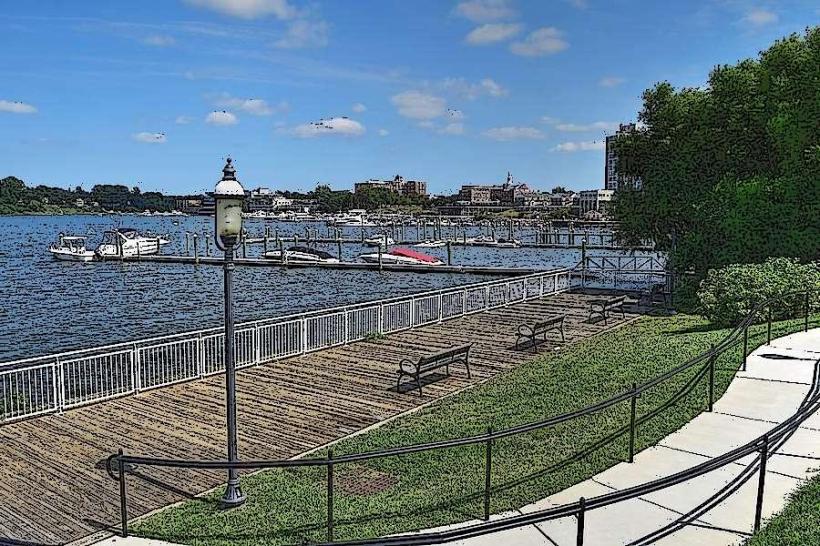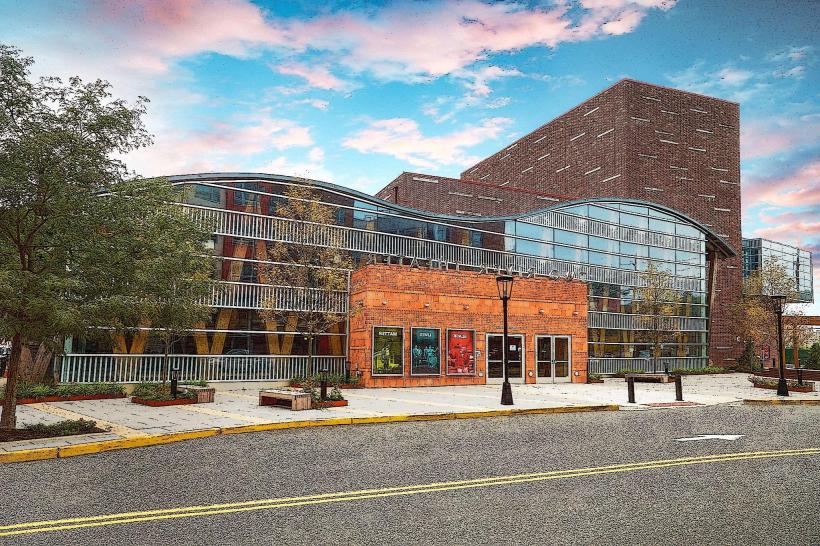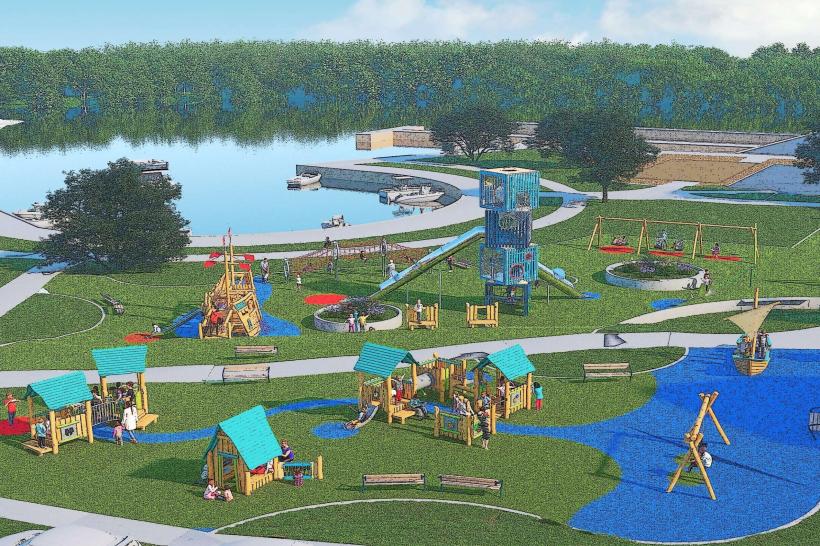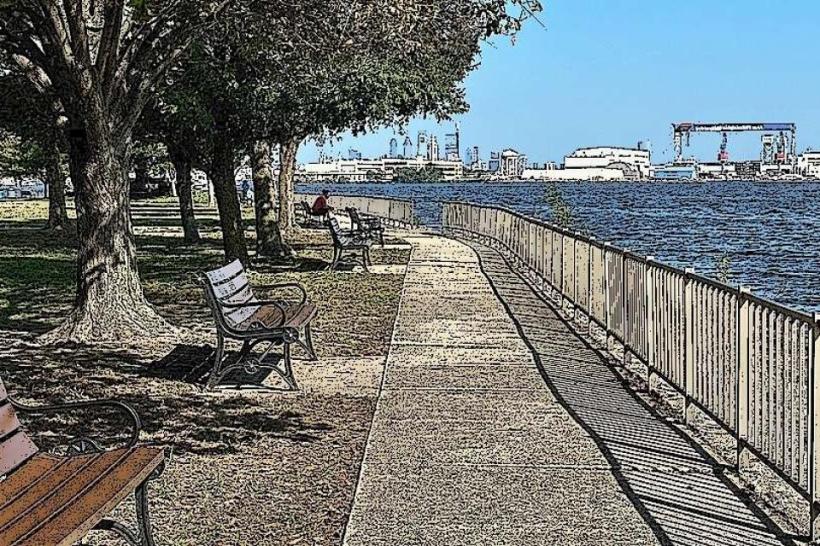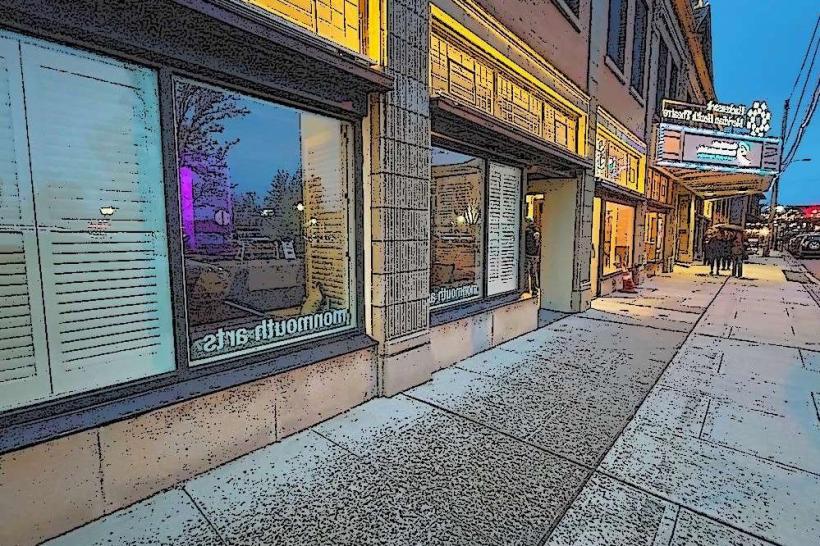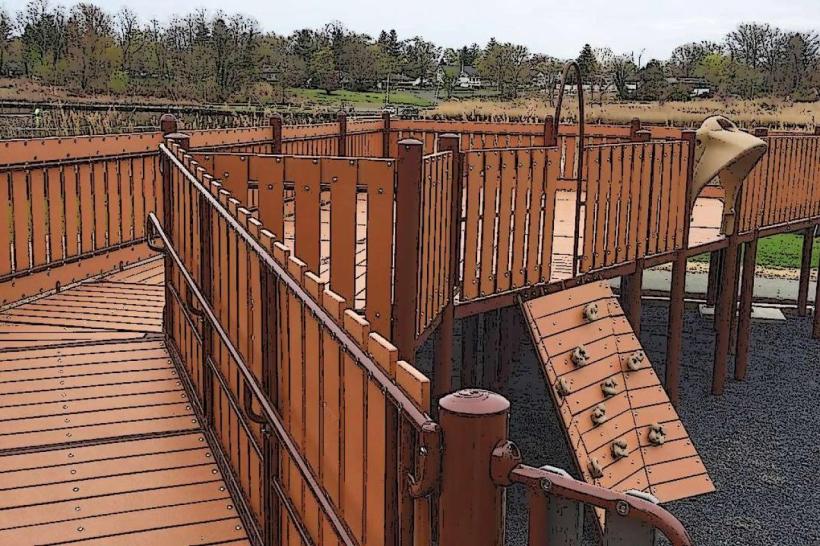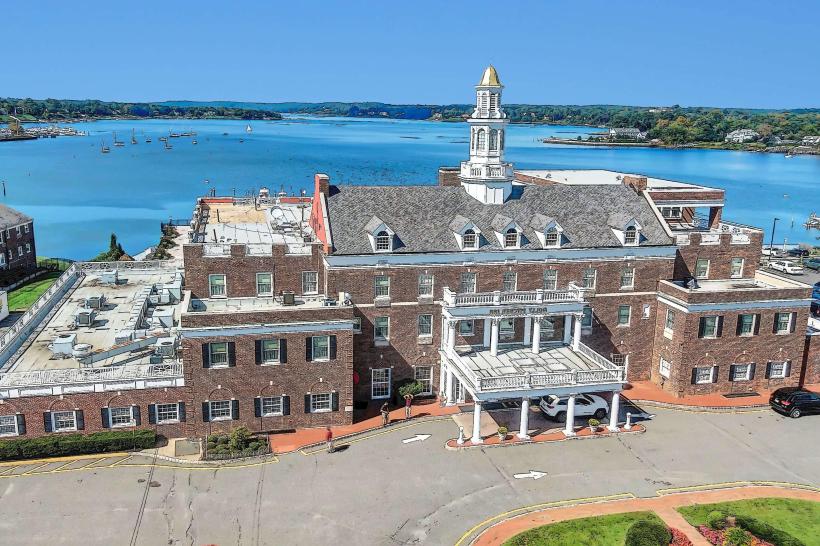Information
Landmark: Monmouth County Historical AssociationCity: Red Bank
Country: USA New Jersey
Continent: North America
Monmouth County Historical Association, Red Bank, USA New Jersey, North America
The Monmouth County Historical Association (MCHA) is the principal organization responsible for collecting, preserving, and interpreting the history of Monmouth County, New Jersey. Founded in 1898, it operates not only as a museum and research center but also as a steward of several significant historic properties. It plays a major role in education, cultural enrichment, and historic preservation throughout the region.
1. Headquarters and Museum – Freehold Borough
The association's main building, located at 70 Court Street in Freehold, is a Georgian Revival-style structure constructed in 1931, designed by architect J. Hallam Conover. This facility serves as the primary museum, administrative center, and research library.
The museum features both rotating and permanent exhibits, showcasing over 35,000 artifacts from the 17th through 20th centuries. Exhibits cover wide-ranging topics such as:
The Lenni Lenape Indigenous peoples
Colonial settlement and agricultural life
The Revolutionary War and Battle of Monmouth
Victorian-era domestic life and industry
Immigration and industrial expansion in the 19th and 20th centuries
Personal collections including textiles, weaponry, portraits, maps, and furniture
One of the most notable artifacts is Emanuel Leutze’s painting Washington Rallying the Troops at Monmouth, a rare original that captures a defining moment in American Revolutionary history.
2. Historic House Museums (5 Sites Across Monmouth County)
MCHA manages and maintains five historic house museums, each representing a distinct era and architectural style. They are typically open seasonally from May through September, offering guided tours and educational programs.
a. Covenhoven House (1752, Freehold)
Built for merchant William Covenhoven.
Served as British General Sir Henry Clinton’s headquarters before the Battle of Monmouth in 1778.
Offers costumed interpreters and period furnishings reflecting elite colonial life.
b. Marlpit Hall (circa 1756, Middletown)
Built by the Taylor family, early Loyalists.
Preserved to reflect 18th-century upper-class domestic life.
Features a permanent exhibit on African American and Indigenous history within the household.
c. Holmes-Hendrickson House (circa 1754, Holmdel)
A rare example of rural Dutch-American vernacular architecture.
Located near Holmdel Park and moved from its original location.
Reflects rural farmstead life in 18th-century Monmouth County.
d. Allen House (circa 1705, Shrewsbury)
Originally a second home for the Stillwell family, later became a tavern.
Site of a Revolutionary War skirmish and massacre.
Restored to reflect its 18th-century function as a tavern and inn.
e. Taylor-Butler House (circa 1853, Shrewsbury)
Victorian Italianate mansion showcasing 19th-century affluence.
Acquired by MCHA in the late 1990s.
Often used for cultural events, art shows, and private rentals.
3. Research Library and Archives
Housed within the Freehold headquarters, the MCHA Research Library is a major repository of primary source materials related to Monmouth County’s history. Holdings include:
More than 200,000 documents, maps, deeds, ledgers, journals, and family records.
Extensive genealogical materials ideal for ancestry researchers.
Local newspapers dating back to the 18th century.
Photographic archives and architectural drawings.
The library is open to the public by appointment and offers professional research assistance, as well as reproduction services. Scholars, students, and genealogists often use the collection for in-depth local historical studies.
4. Educational Programs
MCHA is heavily involved in public education, offering programs to more than 8,000 schoolchildren annually. These include:
Field trips to historic house museums
Traveling exhibits and classroom outreach
Interactive presentations on colonial life, Revolutionary War history, and Monmouth County’s heritage
Professional development for educators
They also conduct lecture series, oral history projects, and seasonal events, extending educational access to adults and lifelong learners.
5. Exhibitions and Public Programs
In addition to its permanent installations, MCHA curates frequent temporary exhibitions. Past themes have included:
Women’s suffrage in Monmouth County
Maritime history and shipbuilding
Fashion and textiles of the 18th and 19th centuries
Civil War memorabilia and letters
Immigrant experiences and cultural transformation
The Association regularly hosts art exhibitions, cultural lectures, holiday programs, open houses, and special fundraising galas such as their annual Garden Party at the Taylor-Butler House.
6. Digital Access and Innovation
To expand its reach, MCHA maintains a growing digital presence through:
A virtual museum and searchable digital catalog of artifacts
Recorded lectures and video tours
A regularly updated blog offering essays on regional history
Social media engagement to highlight current events, anniversaries, and ongoing preservation efforts
This digital expansion allows the public to interact with Monmouth County’s history beyond physical sites.
7. Role in Preservation and Civic Life
As an advocate for historic preservation, MCHA plays a leading role in:
Protecting threatened landmarks
Advising municipalities and private owners on preservation strategy
Conducting restoration of its own house museums with historically accurate materials
Participating in regional and statewide historical commissions and initiatives
The association is also a recognized grantee of the New Jersey Historical Commission, which supports many of its programming and conservation efforts.
8. Community Impact and Legacy
The Monmouth County Historical Association has stood as a cultural pillar for over 125 years. Its multifaceted efforts preserve not only buildings and objects but also local stories, family legacies, and community identity.
Whether it’s a student learning about George Washington, a resident tracing their ancestry, or a visitor exploring a colonial home, the MCHA provides an immersive bridge between past and present. Its work ensures that Monmouth County’s diverse, complex, and dynamic history remains accessible, relevant, and respected across generations.
In essence, it is not just a historical society-it is the living memory of Monmouth County.

